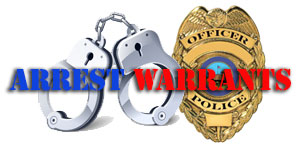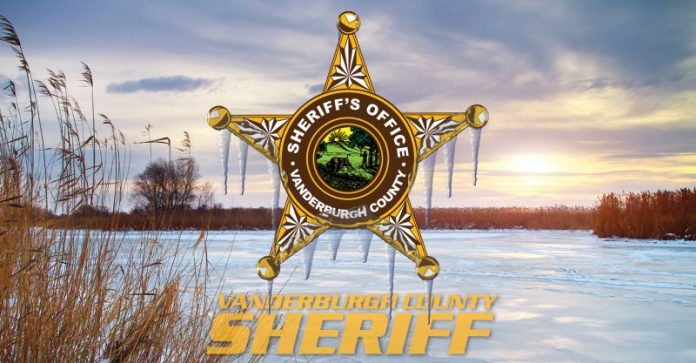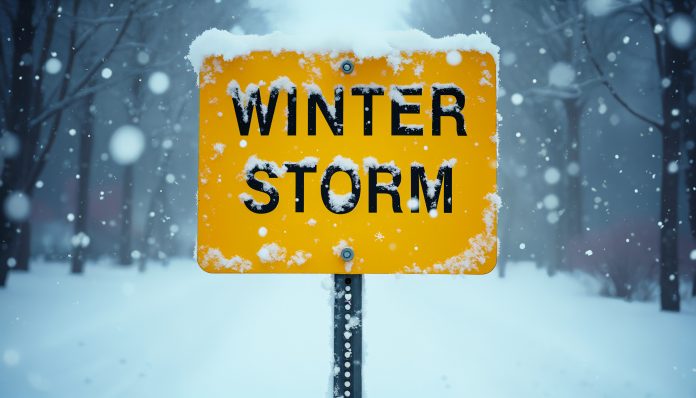Luebbers Palmer earns first MVC Freshman of the Week nod
UE track and field top performers compete at the Indoor Music City Challenge
Subject Wanted After Early Morning Battery Run
Officers were dispatched to the 2000 block of E. Virginia St just after 7:00 am in reference to a person with a gun. The caller stated his daughter was at this location and a male had beaten up her friend and threatened them both with a gun. Officers arrived on scene and spoke to a juvenile victim who stated the suspect, identified as Corey Golike, physically attacked her in the alley. Golike then told the adult victim to go inside the house while he and the juvenile victim remained outside, or he would kill both victims. Golike and the juvenile victim later came inside the residence where Golike attacked the juvenile victim again. While inside the house, Golike threatened to shoot both victims again. The juvenile victim was eventually able to run outside and flee Golike after he chased her on foot. Golike fled the scene on foot prior to officer’s arrival.
Through the course of the investigation, a location of interest was discovered. Golike was not located when officers served a search warrant on the home. Golike faces numerous charges from this incident and the investigation is ongoing. If located, please contact 911.
Winter Storm Watch issued until Wednesday
Winter Storm Watch issued February 16 at 1:33PM CST until February 19 at 9:00AM CST by NWS Paducah KY
Description
* WHAT…Heavy snow possible. Total snow accumulations between 4 and 9 inches possible. * WHERE…Portions of southern Illinois, southwest Indiana, western Kentucky, and southeast Missouri. * WHEN…From late Monday night through Wednesday morning. * IMPACTS…Roads, and especially bridges and overpasses, will likely become slick and hazardous. Travel could be very difficult. The hazardous conditions could impact the Tuesday morning, Tuesday evening and Wednesday morning commutes. * ADDITIONAL DETAILS…Dangerous cold temperatures will follow after snow ends. Low temperatures in the teens Wednesday morning and single digits Thursday morning will cause wind chills to drop below zero. The greatest impacts from the extreme cold will occur Thursday morning.
Instruction
Monitor the latest forecasts for updates on this situation. Persons should delay all travel if possible. If travel is absolutely necessary, drive with extreme caution and be prepared for sudden changes in visibility. Leave plenty of room between you and the motorist ahead of you, and allow extra time to reach your destination. Avoid sudden braking or acceleration, and be especially cautious on hills or when making turns. Make sure your car is winterized and in good working order.
Analysis of Senate Bill 01 – Property Tax Cuts
Analysis of Indiana Senate Bill 1 (Latest Version – February 11, 2025)
Indiana Senate Bill 1 (SB 1) is a comprehensive property tax reform bill aimed at curbing tax increases, providing targeted relief for homeowners, increasing tax transparency, and limiting local government spending. The bill introduces new restrictions on property tax growth, implements new tax credits for homeowners, and restructures referendum rules for school districts and local governments.
The bill has passed the Indiana Senate and will move to the Indiana House of Representatives for further consideration. Below is a detailed breakdown of the latest version of SB 1, including what has been removed or changed and the next steps in the legislative process.
Key Provisions of SB 1
Property Tax Deferral Program
SB 1 allows county fiscal bodies to establish a property tax deferral program for qualified homeowners.
Who Qualifies?
Homeowners who meet income and assessed value criteria set by the county.
How It Works:
Qualified homeowners can defer part of their property taxes owed on their homestead. The total amount deferred over multiple years cannot exceed $10,000.
Deferred taxes must be paid in full when a deferral termination event occurs, such as:
- The sale of the property
- The death of the homeowner
- The owner is moving out of the home
Property Tax Caps & Levy Growth Restrictions
SB 1 freezes and restructures the maximum levy growth quotient (MLGQ), limiting how much local governments can increase property taxes.
Tax Levy Growth Caps
- 2026: 0% growth cap – Local governments cannot increase tax levies from 2025 levels.
- 2027: 1% growth cap
- 2028: 2% growth cap
- 2029 & Beyond: New growth calculation based on economic indicators.
How the New Growth Rate Will Be Calculated (Starting 2029)
Instead of a fixed cap, tax levy growth will be tied to a formula based on:
- Personal consumption expenditures
- Statewide wage growth
- National labor productivity
- County-level income growth
This change limits excessive property tax hikes while allowing modest, data-driven adjustments based on real economic conditions.
New Tax Credits & Deductions for Homeowners
First-Time Homebuyer Tax Credit: This applies to first-time homeowners who purchase a primary residence in Indiana. Available for the first five years of homeownership. Annual credit of up to $2,500 (total lifetime limit of $12,500).
Eligibility:
- Household income must not exceed $75,000
- Home’s assessed value must be $250,000 or less
Expanded Property Tax Deduction for Seniors (65+) Income limits raised for eligibility:
- Single filers: $60,000
- Joint filers: $70,000
- Maximum assessed value eligibility raised from $240,000 to $300,000.
- The deduction amount increased from $14,000 to $20,000.
Expanded Property Tax Deduction for Disabled Veterans
- This applies to disabled veterans who are totally disabled or aged 62+ with a partial disability.
- Deduction increased from $14,000 to $20,000.
- Maximum assessed home value raised to $300,000.
Limits on Local Government & School Tax Referendums
SB 1 restricts when local governments and school districts can seek tax increases through referendums.
- School districts can only place tax referendums on general election ballots.
- A school must wait two years after a previous referendum expires before requesting a new one.
Local Government Levy Increases Require Public Approval
Local governments cannot increase tax levies beyond the prior year’s amount unless:
- A public hearing is held
- An ordinance is passed by the fiscal body
The ordinance must state:
- Why the increase is needed
- How much the tax levy will increase
- The expected percentage increase in the tax rate
- Property Tax Transparency Portal
SB 1 requires the Indiana Department of Local Government Finance (DLGF) to develop an online transparency portal where taxpayers can:
- Compare their current tax bill vs. potential future tax bills under new rates.
- Submit public feedback directly to the DLGF about proposed tax increases.
New Restrictions on General Obligation Bonds
Local governments cannot issue new general obligation bonds (funded by property taxes) within two years of a previous bond’s expiration, unless:
- There is a natural disaster, accident, or emergency.
- The Department of Local Government Finance grants an exemption.
This prevents local governments from continuously increasing debt without accountability.
What Was Removed from the Bill?
Several provisions were removed or significantly altered in the latest version of SB 1:
- Stronger Property Tax Levy Freezes Were Removed
- The original version proposed an indefinite freeze on tax levy growth. Instead, the final bill phases in growth caps (0%, 1%, 2%) before switching to an economic formula in 2029.
- More Severe School Referendum Restrictions Were Weakened
- The original bill banned schools from requesting a new referendum for three years after one expired. The final bill shortened this to two years.
- Stronger Spending Caps for Local Governments Were Dropped
- The first draft forced local spending to stay at prior-year levels regardless of revenue growth. The final bill allows tax increases if local officials publicly approve them.
Next Steps for SB 1
Now that SB 1 has passed the Indiana Senate, it moves to the Indiana House of Representatives. Here’s what happens next:
Committee Review in the House
The bill will be assigned to the House Tax and Fiscal Policy Committee for hearings.
Lawmakers can amend the bill by removing, modifying, or adding provisions.
House Floor Vote
If the bill passes the committee, it goes to the full House for a vote.
Reconciling Differences (If Needed)
If the House makes changes, the bill must return to the Senate.
If the Senate disagrees with House amendments, a conference committee will negotiate a final version.
Governor Braun’s Signature or Veto
If the House and Senate agree, SB 1 is sent to Governor Mike Braun.
Governor Braun can:
Sign it into law
Veto it (which the Legislature can override with a majority vote)
Let it become law without a signature
Implementation Timeline
Certain provisions take effect retroactively on January 1, 2025 (such as the first-time homebuyer credit).
Other provisions phase in through 2029, including the new tax levy growth calculation.
Follow this and other bills at IGA.IN.GOV
BOARD OF PARK COMMISSIONERS REGULAR MEETING
BOARD OF PARK COMMISSIONERS
REGULAR MEETING
ROOM 301, CIVIC CENTER COMPLEX
WEDNESDAY, FEBRUARY 19, 2025
NOON
AGENDA
1. CALL TO ORDER
2. MEETING MEMORANDUM FEBRUARY 5, 2025
3. CONSENT AGENDA
a. Request Re: Permission to reapprove passes for various park facilities to be used in EREP’s
talent attraction program. – Crook
b. Request Re: Approve and Execute Park Property Use Permit Application with United Way-
Haitian Center of Evansville for “Haitian Flag Day” at Wesselman Park on May 17, 2025.-Crook
c. Request Re: Approve and Execute Park Property Use Pemit Application with the Evansville
Police Foundation for a “Trunk or Treat” event at Wesselman Park on October 26, 2025.- Crook
d. Request Re: Approve and Execute Extension of the Park Restroom/Shelter Cleaning
Agreement with A-1 Cleaning Service Inc. for 2025.- Fankhouser
e. Request Re: Approve and Execute Extension of the Parks Mowing Agreement with Smith’s
Lawnworks LLC. for 2025.- Fankhouser
4. OLD BUSINESS
N/A
5. NEW BUSINESS
a. Request Re: Permission to seek proposals for Zoo security services.- Beck
b. Request Re: Approve and Execute First Amendment to Construction Agreement (Next Level
Trails Phase One)- Bouseman
c. Request Re: Permission to move forward with renovations to the Mews at Wesselman Woods
– Rhodes
d. Request Re: Permission to begin Native Planting process on the Par 3 parcel. – Rhodes
e. Request Re: Permission to repair existing batting cages and build additional at Golfmoor
Field. – McClish
f. Request Re: Any Other Business the Board Wishes to Consider and Public Comment.
6. REPORTS
Danielle Crook- Executive Director
7. ACCEPTANCE OF PAYROLL AND VENDOR CLAIMS
8. ADJOURN
State of Indiana Monthly Revenue Report – January 2025
INDIANAPOLIS – The monthly revenue report for January 2025 state tax collections is posted online.
The January 2025 Monthly Revenue Report for state fiscal year 2025 can be found here.
Wendy MacNamara Shares Why HB 1118 is Important to Her
The following is provided by State Representative Wendy MacNamara an is published without revision.
Protecting first responders’ use of mental health resources To decompress and heal from these calls, many first responders use critical incident services management (CISM) debriefings after a traumatic event so they can manage the stress of the incident and not suffer any long-term mental health issues.
I authored House Bill 1118, which passed unanimously out of the House, to ensure any first responder using a CISM debriefing would not be compelled to disclose those conversations in a civil, criminal or administrative proceeding.
According to the Indiana Department of Homeland Security, there are more than 40 CISM teams in Indiana, made up of trained peer volunteers who arrive at the scene to help first responders or provide care in the following days. These sessions can be important in making sure our first responders are cared for and ready to respond to the next call.
Learn More













.jpg)